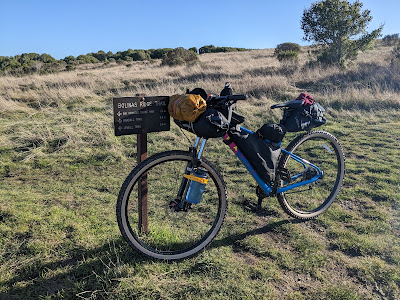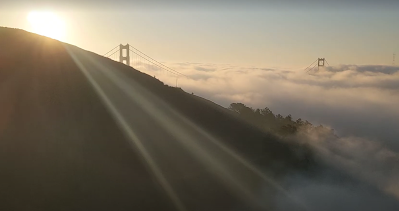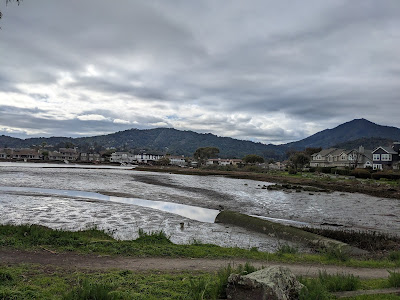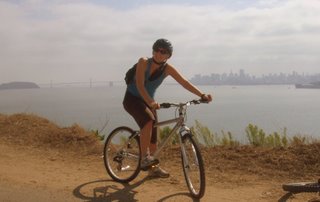NGS asked me to really break down (into the nitty gritty, I think she said) the logistics for my trip. Since route planning is one of the things that takes the most time, I will start with that. Route planning is kind of a three step process: (1) prior to leaving, (2) weekly check ins/general routes (3) daily/last minute updates.
(1) Prior to leaving. Before I left on my trip, I started by figuring out a general idea of how I wanted to do this. You would think it would be very calculated, but really for me, it went something like this. First, I knew that I wanted to do the Great Divide Mountain Bike Route, which goes from Banff, Canada to Antelope Wells, NM (the Mexico border). However, instead of going "straight" there, which may have taken me through Nevada and Idaho before getting to Canada, I decided to visit some friends along the way. I also had winter to contend with so knew that I could not really go anywhere where it was still quite high in elevation or high in latitude. For this reason, I decided to stay near the west coast for a while, where it would hopefully be warmer. I also knew that when possible, I wanted to go on dirt instead of highways.
For both of the above, they have maps that are usually made with the
Ride With GPS site, and can be downloaded and/or exported to your navigation device. I have a Garmin Edge and so I then export the route to the Garmin for use on the road. You can also edit the routes on Ride With GPS, but I normally do my editing in Komoot.
The Garmin Edge is like any other GPS navigation tool; it will tell you when to turn, how far you have gone, how fast you are going and what your elevation is etc. It also has a hill feature, where it will tell you data on each hill: how far it is from you, how long it is, and when you are on the actual hill, it will show an elevation profile. This is probably my least favorite aspect as it generally means I am struggling, but it is handy.
 |
| Regular mileage/data screen |
 |
| Turn by turn |
 |
| Hills! Dark red is my enemy! |
Komoot is like Google Maps, but it has options for dirt, gravel or road, and can also be used for hiking for the same reason. With this, you put in your start and end and then choose your method (road biking, mountain biking, gravel, touring) and it will figure out the best route for you. This needs to be taken with a grain of salt, as it often will take you on private or closed roads, or will go off the main route to get a more scenic route, which often results in more hills or more turns. However, it is a good start. Once the route is complete, you can save it offline into your phone, and/or you can export it to a navigation device. Note, this will also tell you your elevation gain and loss, total miles, time it will take, surfaces and way types along with an elevation profile.



Google Maps was mostly used to look at city routes and to compare with the route that Komoot came up with to see if they or where they differ. However, I cannot export the Google Map to my Garmin, so before leaving, it was used more as a fact checker than anything else. So basically, before I left, I had the maps for my trip all the way to Antelope Wells, NM and I figured I would sort the rest out later.
(2) Weekly check ins. As you already know, right from the get go, the snow caused me to have to change my route from California, as I had planned on going up and over some 6,500 foot mountains, but ended up having to take the lower, more flat, more road heavy route. This happened later a few times as well. What do I do in this case? I edit my existing Komoot maps, by doing a "save as" and I resave the existing route with a different name and then edit that accordingly. For example, my first iteration was Grass Valley to Klamath Falls via mountain, then the next was GV to KF via road, then the next one was GV to Redding via road! Every time I get into service and have a room, I double check the routes and the weather and update the route accordingly and re-export it to my Garmin.
Sometimes I can find a route someone else has already made on Ride With GPS and then I just use their map. For example, in BC I was going to do the BC Epic 1000 route, which goes over Gray Creek Pass. When I was in Vancouver, I posted on the BC Epic1000 FB group to see if people thought I would be able to get through and/or to get any intel on snow conditions, and I was told that I likely would not get through, so I searched on RWGPS for Gray Creek alternate, and found a map going around on a lower route. I downloaded that, exported it to my Garmin and I was ready to go.
(3) Daily/Last Minute Updates. This does not happen a lot, but sometimes there is construction, or snow where I did not know there would be snow, or a road is closed and/or private. In this case, if I have service, I can make a new map and it will sync with my Garmin. If I am out of service, I just have to keep looking at the map, which is saved offline on my phone, in order to figure out where I may be able to go. I also always download all of my Google Maps to be offline in case this happens and even though I cannot use the biking directions when I am offline, I can at least see which route a car would take and how many miles/km it is to my destination.
I also have to check the route every few days depending on what the accommodation options are. If I am in a national forest, this is easy, as I can generally camp wherever I want. If I am in civilization, often my daily mileage is decided by where the next place to stay is. I try to figure this out every few days so I am not doing back to back long days with no services in between. I also like to have a room at least once per week; otherwise I get cranky and hungry and stinky, so I may prepare my route to do a long day today so that I can have a short day of riding and a long day in town tomorrow.
I know that is a lot, so here is the TLDR (at the end!)
Bikepacking.com: tried and true pre-made routes (usually multi-day & more off road)
Ride with GPS: GPS routes that anyone can put online (may need verification) / can make own route
Komoot: GPS routes that anyone can put online (may need verification) / can make own route
Google Maps: best for towns/roads/use offline for general area
Alternative mapping tool: Gaia GPS
What route planning tools do you use for your hikes/runs/bike rides/road trips? If you are going for multiple days, do you always plan out every day beforehand or do you have some days that are ad hoc?
If you haven't already, you can
fill out this form with any questions you want answered for my upcoming ask me anything post!!
























 Haha, I can actually say that without feeling like I am disrespectful! We are near Lake Titicaca, in Puno, Peru. According to the Peruvians, they got the Titi and Bolivia got the Caca. The funny thing is that Bolivia actually has the more beautiful side of the lake. There are a bunch of mountains surrounding it which are more than 6000 meters high (19000 Feet) and are covered in snow. It is a very nice place to be.
Haha, I can actually say that without feeling like I am disrespectful! We are near Lake Titicaca, in Puno, Peru. According to the Peruvians, they got the Titi and Bolivia got the Caca. The funny thing is that Bolivia actually has the more beautiful side of the lake. There are a bunch of mountains surrounding it which are more than 6000 meters high (19000 Feet) and are covered in snow. It is a very nice place to be.  I lifted up my leg, swung it around and over the seat, closed my eyes and started to pedal, all the while praying to god that I would not fall....
I lifted up my leg, swung it around and over the seat, closed my eyes and started to pedal, all the while praying to god that I would not fall....